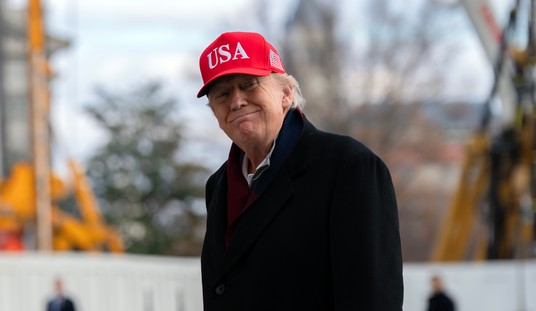President Vladimir V. Putin of Russia called President Obama on Friday to discuss a proposal by Mr. Obama for a diplomatic resolution to the crisis in Ukraine, and the two leaders agreed that diplomats for both countries should meet soon to discuss it, the White House said.
In a statement from the White House, officials said that the telephone call from the Russian president followed a proposal presented by Secretary of State John Kerry to Sergey V. Lavrov, the Russian foreign minister, during talks at the Hague earlier this week.
Officials did not describe details about the proposal but said that Mr. Obama told Mr. Putin during the call that the United States would like to see a diplomatic solution that involves Russia pulling back its troops from the Crimean Peninsula and not making any further steps to invade other parts of Ukraine.
Russian troops massing near Ukraine are actively concealing their positions and establishing supply lines that could be used in a prolonged deployment, ratcheting up concerns that Moscow is preparing for another major incursion and not conducting exercises as it claims, U.S. officials said…
The rapid speed of the Russian military buildup and efforts to camouflage the forces and equipment have stoked U.S. fears, in part because American intelligence agencies have struggled to assess Russian President Vladimir Putin’s specific intentions…
“It’s really a question of leadership intentions. Who does Putin tell, if anyone, what his plans are?” a senior Obama administration official said. “He’s obviously putting things in place in case he wants to go in. The question is whether a political decision has been made to do so.”…
“It’s not the number that matters most. They have enough to move in now, regardless, and in the right composition to be dangerous,” the senior U.S. official said. “What matters is the intent. And we don’t have a clear sense of that.”
SCOTT PELLEY: What is Vladimir Putin after?
BARACK OBAMA: Well, if you take him at his word —
PELLEY: Can you?
OBAMA: Well, on this, I think he’s been willing to show a deeply held grievance about what he considers to be the loss of the Soviet Union. You would have thought that after a couple of decades that there’d be an awareness on the part of any Russian leader that the path forward is not to revert back to the kinds of practices that, you know, were so prevalent during the Cold War, but, in fact, to move forward with further integration with the world economy and to be a responsible international citizen. You know, he’s said that he considers the breakup of the Soviet Union to be tragic. I think there’s a strong sense of Russian nationalism and a sense that somehow the West has taken advantage of Russia in the past and that he wants to in some fashion, you know, reverse that or make up for that. What I have repeatedly said is that he may be entirely misreading the West. He’s certainly misreading American foreign policy. We have no interest encircling Russia and we have no interest in Ukraine beyond letting Ukrainian people make their own decisions about their own lives, and it is true that we reject the notion that there is a sphere of influence along the Russian border that then justifies Russia invading other countries. Certainly they’re going to have influence because of trade and tradition and language and heritage with Ukraine and everybody acknowledges that. There’s a difference between that and sending in troops. And because you’re bigger and stronger, taking a piece of the country, that is not how international law and international norms are observed in the 21st century.
The East Europeans know they inhabit the battleground between the West and a Russia that wants to return them to its sphere of influence. Ukrainians see tens of thousands of Russian troops across their border and know they are looking down the barrel of quite a zero-sum game.
Obama thinks otherwise. He says that Vladimir Putin’s kind of neo-imperialist thinking is a relic of the past — and advises Putin to transcend the Cold War.
Good God. Putin hasn’t transcended the Russian revolution. Did no one give Obama a copy of Putin’s speech last week upon the annexation of Crimea? Putin railed not only at Russia’s loss of empire in the 1990s. He went back to the 1920s: “After the revolution, the Bolsheviks . . . may God judge them, added large sections of the historical South of Russia to the Republic of Ukraine.” Putin was referring not to Crimea (which came two sentences later) but to his next potential target: Kharkiv and Donetsk and the rest of southeastern Ukraine.
Putin’s irredentist grievances go very deep. Obama seems unable to fathom them. Asked whether he’d misjudged Russia, whether it really is our greatest geopolitical foe, he disdainfully replied that Russia is nothing but “a regional power” acting “out of weakness.”
Putin assumes that CIA agents were behind the ousting of his clients in Kiev last month. It is what he would have done in their shoes. You can almost see him beaming with (misguided) professional pride: a (highly visible) covert operation emphasizing (implausible) deniability by (inadequately) disguising invading Russian troops and then establishing a (puppet) Crimean regime to appeal for annexation.
This is skillful espionage work — by the standards of U.S. covert operations in Guatemala, Iran and elsewhere in the 1950s. That seems to be Putin’s chronological frame of operational reference, not the 19th century…
Rather than admit defeat in the spy-vs.-spy contest that rages largely in his head, Putin has ended the 30-year post-Cold War era dedicated to making Russia a normal state. That gives Obama, who possesses no realistic immediate option to roll back the annexation of Crimea, room to use diplomatic jujitsu by employing Putin’s own momentum against him.
The Russian president did not engineer the Ukrainian crisis, but he has exploited it to begin forging something far more dangerous than land grabs: namely, a political arrangement that could secure his rule of Russia for life. The annexation of Crimea has fueled nationalist hysteria and paranoia within Russia, and Putin has ridden that wave, reshaping his government into one that is far more repressive, ideologically driven, openly messianic and founded on a revisionist view of history that is explicitly anti-West and anti-American…
Never before has a dictator with such a cult of personality had such access to these kinds of weapons. Stalin, as brutal and antagonistic to the West as he was, did not have missiles. Even the Soviet Union under Nikita Khrushchev had only short-range missiles. (It was his move to place them close enough to reach the United States that provoked the Cuban missile crisis.) And Khrushchev, for all his erratic aggressiveness, was definitely constrained by the Supreme Soviet, which in the end removed him from office, in part because of the Cuba escapade.
Mao Tse-tung had a bomb but no missiles. Leonid Brezhnev had long-range missiles, but his was definitely a collective leadership regime, overseen by the largely older, conservative and generally risk-averse Politburo. In North Korea today, Kim Jong Un is certainly a totalitarian leader with a god-like cult of personality, but he has only a handful of ICBMs whose reliability, range and precision are still uncertain. Finally, China is busily developing its long-range delivery vehicles, but its leader, at least for now, is selected — and largely controlled — by the elite. Moreover, he is rigidly limited to two five-year terms.
Since Western democracies have never confronted an aggressive personality-driven autocracy armed with strategic nuclear warheads, a response must be quickly improvised.
Perhaps this will serve as Obama’s new “orienting” moment. Already, he has taken the lead in imposing sanctions on Russia, while orchestrating the global response to the annexation of Crimea. In his Brussels speech, he noted that “a coldhearted calculus” of interests in Ukraine might dictate that the United States “look the other way.” Yes, that’s a typical Obamian straw man — on the order of “some say …” — but the assertion also allowed him to reaffirm those “universal” principles that guide American foreign policy. Maybe it took Putin to remind the president of those principles. Obama has always said that he admires realists like former Secretary of State James Baker and former National Security Advisor Brent Scowcroft, but his sense of his own destiny, and of America’s, is too exalted for him to accept the coldhearted calculus that made those men so effective.
What would it mean for the Putin challenge to reorient Obama? First, it might give Obama a large and urgent sense of purpose. Secretary of State John Kerry, consumed by the sense of urgency and hyperbolic self-assurance Obama once exuded, has taken on every impossible portfolio; meanwhile, the White House has complacently waved as he disappeared over the horizon. Protecting “the West” is a fine job for a president once accused of harboring “post-European” sentiments. Only the United States can organize the military, diplomatic, and economic response to Russia’s provocation. Kerry will wind up doing that too, but there must be no doubt, including in Putin’s mind, that Obama himself is driving the policy…
One thing Obama believes in deeply, as anyone who has read his national security strategy would recognize, is international law and institutions. Putin has quite helpfully reminded the world of why a rule-based international order matters. Obama has the opportunity to wrap himself in that flag.
The message seems to be that if Mr. Putin doesn’t move troops into eastern Ukraine, the West will impose no further sanctions or costs. De facto, Russia’s seizure of Crimea will stand and, except for a handful of Russian officials, business will go on as usual.
No one wants a new Cold War, much less a military confrontation. We want Russia to be a partner, but that is now self-evidently not possible under Mr. Putin’s leadership. He has thrown down a gauntlet that is not limited to Crimea or even Ukraine. His actions challenge the entire post-Cold War order including, above all, the right of independent states to align themselves and do business with whomever they choose.
Tacit acceptance of settling old revanchist scores by force is a formula for ongoing crises and potential armed conflict, whether in Europe, Asia or elsewhere. A China behaving with increasing aggressiveness in the East and South China seas, an Iran with nuclear aspirations and interventionist policies in the Middle East, and a volatile and unpredictable North Korea are all watching events in Europe. They have witnessed the fecklessness of the West in Syria. Similar division and weakness in responding to Russia’s most recent aggression will, I fear, have dangerous consequences down the road…
Therefore, the burden of explaining the need to act forcefully falls, as always, on our leaders. As President Franklin D. Roosevelt said, “Government includes the act of formulating a policy” and “persuading, leading, sacrificing, teaching always, because the greatest duty of a statesman is to educate.” The aggressive, arrogant actions of Vladimir Putin require from Western leaders strategic thinking, bold leadership and steely resolve—now.








Join the conversation as a VIP Member